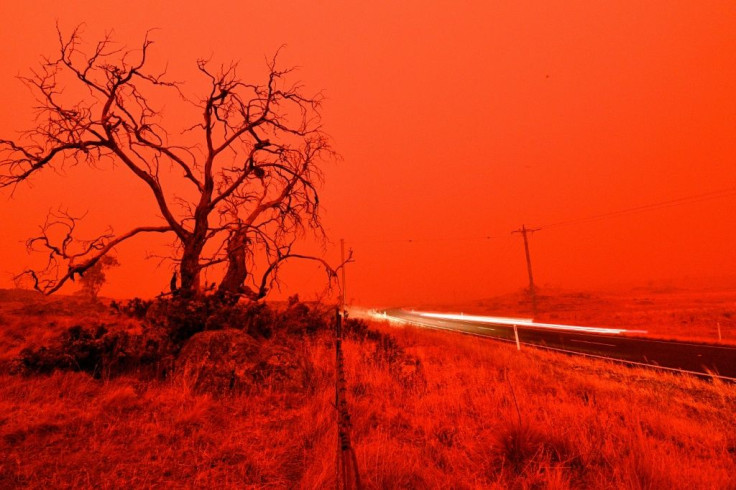Climate Change: Australia Remains Committed To Coal Despite Greenhouse Gas Fears

KEY POINTS
The Australian coal mining industry employed 36,000 workers in 2018
Australia is expected to increase coal exports through 2024 to meet Asian demand
Australian coal exports were valued at $46 billion in 2018
Despite raging bushfires that have destroyed millions of acres of land, killed at least 27 people and untold numbers of animals, the government of Australia remains committed to increasing coal production and maintain its status as one of the world’s biggest coal exporters.
Scientists contend that climate change has exacerbated drought conditions and driven up temperatures, thereby causing bigger more frequent fires. Much of this damage has been linked to fossil fuel production, including coal, and greenhouse gas emissions.
On Dec. 18, 2019, Australia recorded the hottest day in its recorded history, with temperatures reaching 105.6 degrees Fahrenheit. Since September, about 25.5 million acres have been burned by bushfires.
Prime Minister Scott Morrison, facing calls for his resignation over his handling of the bushfire emergency, has declared he doesn't think more cuts to Australia's carbon emissions would have decreased the amount of fires this year.
"To suggest that with just 1.3% of global emissions that Australia doing something differently, more or less, would have changed the fire outcome this season, I don't think that stands up to any credible scientific evidence at all," he said. “Climate change is a global phenomenon and we’re doing our bit as part of the response to climate change -- we’re taking action on climate change.”
Morrison also rejected proposals to downsize the nation’s coal industry.
"I am not going to write off the jobs of thousands of Australians by walking away from traditional industries," Morrison said.
In 2017, Morrison actually carried a lump of coal into the Australian parliament and declared: “this is coal, don’t be afraid, don’t be scared.”
Australia’s energy minister Angus Taylor also defended the country’s efforts on tackling climate change. “When you compare Australia’s emission reduction track record with nations such as Canada and New Zealand -- both commodity-exporting developed countries like Australia -- we’ve done far better,” he said.
Morrison's political opponents have condemned his administration for its climate policy.
"His totally inadequate response to these fires and his obstinate refusal to accept what we have known for decades: that burning climate-changing fossil fuels would lead to more frequent and intense bushfires [and] is putting the lives of Australians at risk," said Richard Di Natale, head of Australia's Greens parties.
But coal is big business in Australia.
Australia is the fourth biggest coal producer in the world, behind China, India, and the U.S. and is also the world’s largest exporter of coal and liquefied natural gas.
Coal exports were valued at $46 billion in 2018, surpassing iron ore as Australia’s most valuable export product.
Moreover, the coal industry enjoys widespread support among politicians regardless of party affiliation. Even the center-left Labor Party has called for increasing Australia’s coal exports.
The International Energy Agency reported last month that Australia’s coal exports are expected to climb over the next five years largely due to surging demand from Asia – a 4.6% increase by 2024 from India and a 5% jump in demand from both Indonesia and Vietnam over that period.
Consequently, Australia’s total coal production is projected to rise from 409 million tons in 2018 to 444 million tons in 2024.
Australia’s Minister for Resources Matt Canavan said the country needs to operate new coal mines in New South Wales and Queensland to meet swelling demand.
“We will need more than Adani,” he said, referring to a new coal mine in Queensland’s Galilee Basin. The Adani mine is expected to produce at least 10 million tons of thermal coal every year.
The Australian coal mining industry employed 35,638 workers in June 2018, but that was down from more than 45,000 in June 2012.
© Copyright IBTimes 2025. All rights reserved.





















